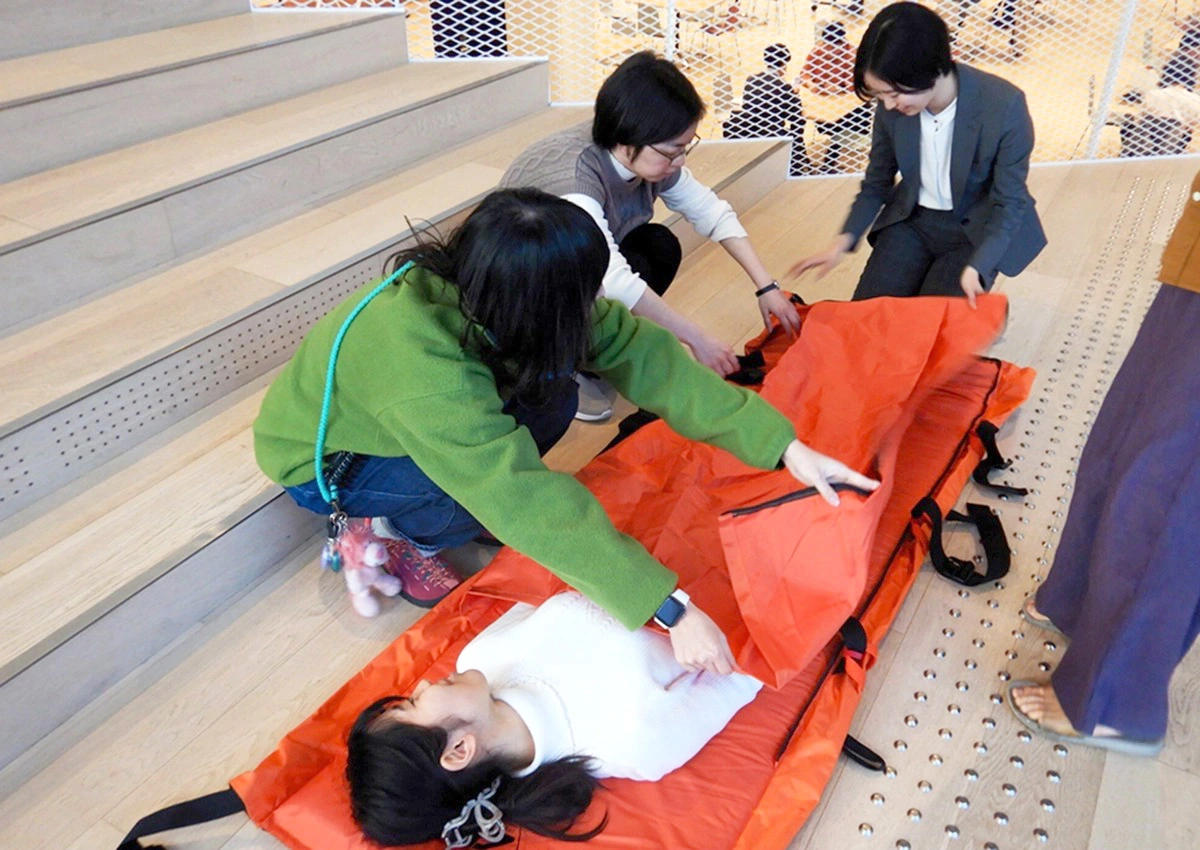
Institute of Science Tokyo (Science Tokyo) held an award ceremony on March 17 at Hisao & Hiroko Taki Plaza on Ookayama Campus to present certificates to 35 students and faculty members newly certified as Level 2 Accessibility Leaders. This was the first cohort to be certified after the birth of Science Tokyo in October 2024.
After the ceremony, a workshop focusing on sign language and the use of assistive devices was also held to encourage certified students to put their learning into practice.
The Accessibility Leadership Program (ALP) aims to provide individuals with knowledge on ways to promote accessibility in a society of diverse needs. The course is offered in an on-demand format, and trainees may choose to take the certification exam online.
Science Tokyo offers ALP training at its Student Accessibility Services unit, where students can obtain certification to become Level 2 Accessibility Leaders. In 2024, a total of 35 community members, including 14 students and 21 faculty and staff members, were certified.
At the award ceremony, Riko Okada, a 1st-year master’s student in Mechanical Engineering who participated in the nationwide Accessibility Leader Camp for certified students, gave a report on her experiences.
Nobuhide Hirai, head of the Student Accessibility Services who presided over the ceremony, expressed his high hopes for the first accessibility leaders to be certified after the establishment of Science Tokyo.


Ten students participated in the workshop after the award ceremony. In the first half, 1st-year Life Science and Technology student Hozuki Kurosawa taught the participants some simple expressions in sign language. For the second half, the workshop relocated to the central staircase of Taki Plaza, where students practiced using the Airstretcher, a self-inflating universal stretcher for transporting mobility-impaired individuals up or down stairs.


Comments from Accessibility Leaders
- It was a good opportunity to learn something completely different to add to what I have learned so far in high school, university, and my daily life. It can be hard to admit your own ignorance, but I am glad I was able to learn something through this program.
- I learned that there are still many initiatives I am not aware of, and also learned about disabilities I did not know about before. I felt that we should consider different environments and users from the start. I also learned that many things we use on a daily basis are made with users with various backgrounds in mind.
- I discovered that accessibility can be viewed from various perspectives. I also learned a lot about where the term “accessibility” and other related words come from, which was very informative.
- By learning about accessibility, I became better at clearly visualizing various ways to support people with disabilities, which I was unaware of or had not previously noticed. I feel like the world I now see has vastly expanded. I am grateful for this wonderful learning opportunity, which will be useful in my future work.
- The program — both the course and the exam — was entirely online, which meant I could learn at home during my off-hours. This encouraged me to take the course. Being able to study at my own pace made it easy to learn.
Academic year 2024 marked the fifth year of ALP at Science Tokyo and its predecessor universities, with more than 200 participants to date. ALP aspires to foster interest and awareness in individuals about what is considered “accessible” and “inclusive,” regardless of language, culture, environment, gender, age, or disability, and to create a campus where people from diverse backgrounds can feel comfortable and included.
- All titles, affiliations, and years of study are as of the time of the event.
Related articles
Updated history
- This article was updated on June 3, 2025
Contact
Student Accessibility Services, Student Guidance and Accessibility Section,
Student Support Center, Ookayama Campus
Email barrierfree@ssc.isct.ac.jp
Tel +81-3-5734-2989